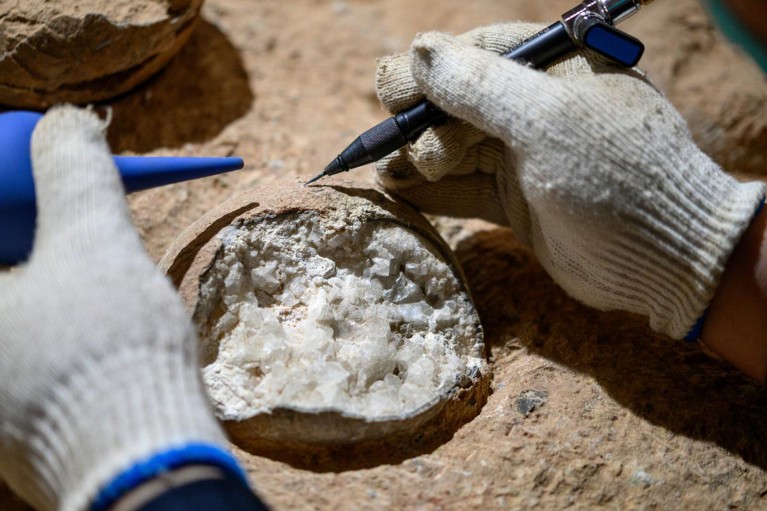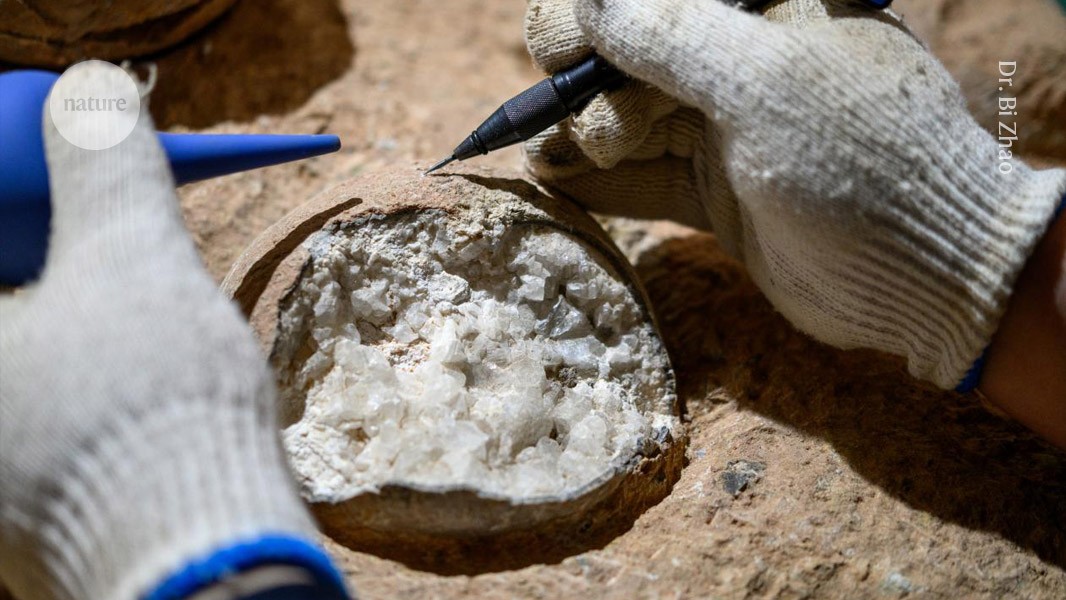
Numerous dinosaur eggs have been found in Shiyan, China, but their age has been unknown until now.Credit: Dr. Bi Zhao
Scientists in China have calculated the direct age of a fossilized dinosaur egg1 for the first time. The newly dated egg, from a cluster of 28 found in a nesting area in Shiyan, China, is around 85.9 million years old, according to a study published in Frontiers in Earth Science today.
Working out how old fossilized eggs are typically involves indirectly dating the volcanic ash or rock layers in which the specimens are embedded. But indirect methods can be inaccurate, because the material might not have formed at the same time as when the eggs were laid.
To determine the age of an egg directly, the researchers fired lasers at eggshell fragments to vapourize the minerals deposited on the surface during fossilization. The resulting vapour contained lead and uranium atoms. Uranium naturally decays into lead. Because the decay happens at a consistent rate, studying the composition of decaying uranium atoms (or isotopes) and stable lead atoms trapped in geological material, such as the dinosaur eggs, reveals the fossil’s age.
“To the best of our knowledge, this is the first time that in situ isotopic ages have been reported for dinosaur eggshells both in China and, very likely, worldwide,” says study co-author Xing Cheng, a geologist at the Chinese Academy of Science in Xi’an. The method has previously been used to estimate the ages of fossilized bones and teeth2, as well as those of rocks and minerals3.
Guntupalli Prasad, a palaeontologist at the University of Delhi in New Delhi, says that the direct dating method will have wide ramifications for palaeontology. “This will remove the uncertainties associated with the ages of many fossils,” he says.
But Susannah Maidment, a palaeontologist at the Natural History Museum in London, says that the study did not account for the processes that occur between the egg’s burial and fossilization. One such process, called diagenesis, could change the original composition of the studied materials. “Any attempt to direct date fossils must demonstrate that the mineralogy has not been altered by diagenetic processes, as this would result in an incorrect age estimation,” she says.
The authors say previous research has revealed little to no volcanic activity that would disturb eggs in the area and the eggshells sampled were well-preserved with no shell deformation, which suggests negligible alteration after they were laid. However, they said they intend to conduct further studies to verify their results.


